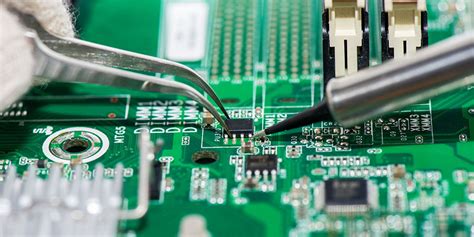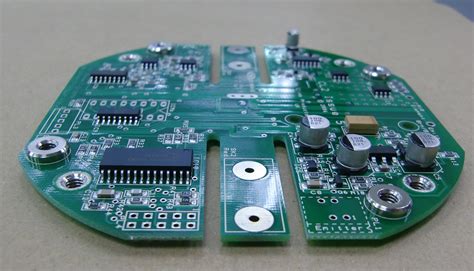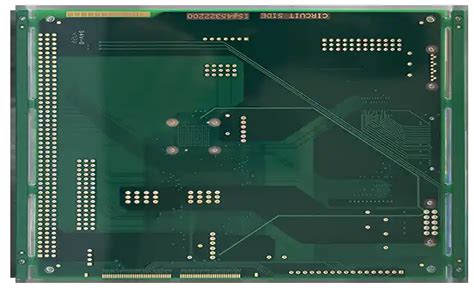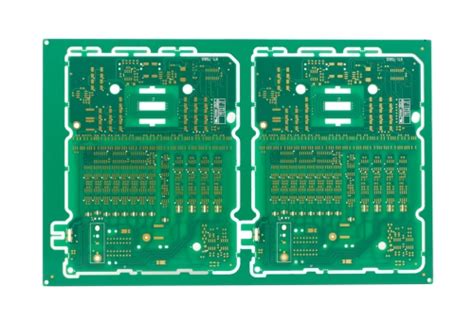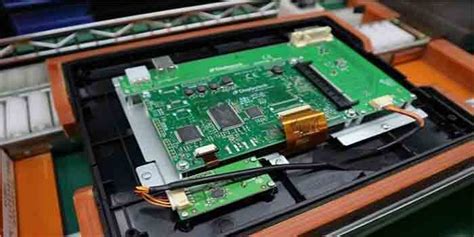Mexico pcb assembly
Innovations In Mexico PCB Assembly: A Growing Industry
Mexico has emerged as a significant player in the global electronics manufacturing industry, particularly in the realm of printed circuit board (PCB) assembly. This growth can be attributed to a combination of strategic geographical location, skilled labor force, and favorable economic policies. As the demand for electronic devices continues to rise, the innovations in Mexico’s PCB assembly sector are becoming increasingly noteworthy, positioning the country as a competitive hub for electronics manufacturing.
One of the primary factors contributing to the growth of PCB assembly in Mexico is its proximity to the United States, one of the largest markets for electronic goods.
This geographical advantage allows for reduced shipping times and costs, making it an attractive location for companies looking to optimize their supply chains. Furthermore, the North American Free Trade Agreement (NAFTA), now succeeded by the United States-Mexico-Canada Agreement (USMCA), has facilitated trade by reducing tariffs and encouraging cross-border collaboration. This has led to an influx of foreign investment in Mexico’s electronics manufacturing sector, further bolstering its capabilities.
In addition to its strategic location, Mexico boasts a highly skilled labor force that is well-versed in the intricacies of PCB assembly.
The country has invested significantly in education and training programs to ensure that its workforce is equipped with the necessary skills to meet the demands of modern electronics manufacturing. This focus on skill development has resulted in a labor pool that is not only technically proficient but also adaptable to the rapidly evolving technological landscape. Consequently, companies operating in Mexico can leverage this expertise to produce high-quality PCBs that meet international standards.
Moreover, Mexico’s commitment to innovation is evident in its adoption of advanced manufacturing technologies.
The integration of automation and robotics in PCB assembly processes has enhanced production efficiency and precision, reducing the likelihood of errors and defects. This technological advancement is complemented by the implementation of Industry 4.0 principles, which emphasize the use of data analytics and the Internet of Things (IoT) to optimize manufacturing operations. By embracing these innovations, Mexico’s PCB assembly industry is able to offer competitive pricing without compromising on quality.
Environmental sustainability is another area where Mexico’s PCB assembly industry is making strides.
As global awareness of environmental issues grows, there is increasing pressure on manufacturers to adopt eco-friendly practices. In response, many PCB assembly facilities in Mexico are implementing green manufacturing processes, such as recycling waste materials and reducing energy consumption. These efforts not only minimize the environmental impact of production but also align with the sustainability goals of international clients, further enhancing Mexico’s appeal as a manufacturing destination.
In conclusion, the innovations in Mexico’s PCB assembly industry are driving its growth and establishing the country as a formidable player in the global electronics manufacturing landscape. The combination of strategic location, skilled labor, advanced technologies, and a commitment to sustainability positions Mexico as an attractive option for companies seeking efficient and reliable PCB assembly solutions. As the industry continues to evolve, Mexico’s role in the global supply chain is likely to expand, offering new opportunities for collaboration and development in the electronics sector.
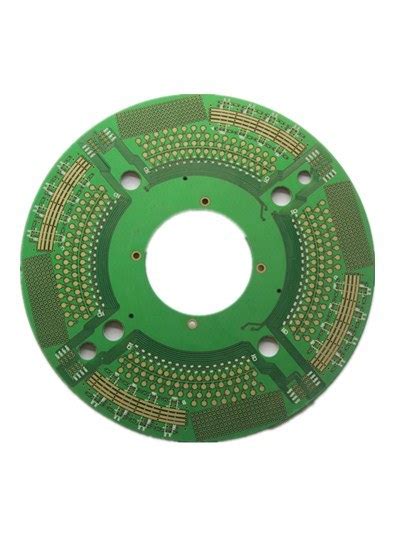
Benefits Of Choosing Mexico For PCB Assembly Services
When considering options for printed circuit board (PCB) assembly services, Mexico emerges as a compelling choice for businesses seeking efficiency, cost-effectiveness, and quality. The strategic advantages of choosing Mexico for PCB assembly are manifold, beginning with its geographical proximity to the United States. This proximity not only reduces shipping times and costs but also facilitates smoother communication and collaboration between companies and their manufacturing partners. As a result, businesses can enjoy a more agile supply chain, which is crucial in today’s fast-paced market environment.
Moreover, Mexico boasts a well-established manufacturing infrastructure, particularly in the electronics sector.
The country has invested significantly in developing its industrial capabilities, resulting in a robust network of suppliers and skilled labor. This infrastructure supports high-quality PCB assembly services, ensuring that products meet international standards. Additionally, the presence of numerous free trade agreements, such as the United States-Mexico-Canada Agreement (USMCA), further enhances Mexico’s attractiveness by reducing tariffs and fostering a favorable trade environment.
Another significant benefit of choosing Mexico for PCB assembly is the cost advantage.
Labor costs in Mexico are generally lower than in many other countries, including the United States and China. This cost efficiency does not come at the expense of quality, as Mexican manufacturers are known for their adherence to stringent quality control measures. The combination of lower labor costs and high-quality output allows companies to achieve a competitive edge in pricing their products, thereby enhancing their market position.
In addition to cost and quality, Mexico offers a skilled workforce that is well-versed in the latest technologies and manufacturing processes.
The country’s educational institutions and vocational training programs have been tailored to meet the demands of the electronics industry, ensuring a steady supply of qualified technicians and engineers. This skilled labor pool is essential for maintaining high standards in PCB assembly, as it enables manufacturers to implement complex designs and innovative solutions with precision and reliability.
Furthermore, Mexico’s commitment to sustainability and environmental responsibility is increasingly becoming a decisive factor for companies prioritizing eco-friendly practices.
Many Mexican PCB assembly facilities adhere to international environmental standards, such as ISO 14001, and employ green manufacturing techniques. This focus on sustainability not only helps companies reduce their carbon footprint but also aligns with the growing consumer demand for environmentally responsible products.
The cultural and linguistic similarities between Mexico and the United States also play a role in facilitating business operations.
Shared time zones and cultural understanding contribute to more effective communication and collaboration, reducing the likelihood of misunderstandings and delays. This cultural alignment can be particularly beneficial for companies that require frequent interaction with their manufacturing partners to ensure that their specific requirements are met.
In conclusion, the decision to choose Mexico for PCB assembly services is supported by a range of compelling benefits.
From geographical advantages and cost savings to a skilled workforce and a commitment to quality and sustainability, Mexico offers a comprehensive package that meets the diverse needs of businesses in the electronics industry. As companies continue to navigate the complexities of global supply chains, Mexico stands out as a strategic partner capable of delivering reliable and efficient PCB assembly solutions.
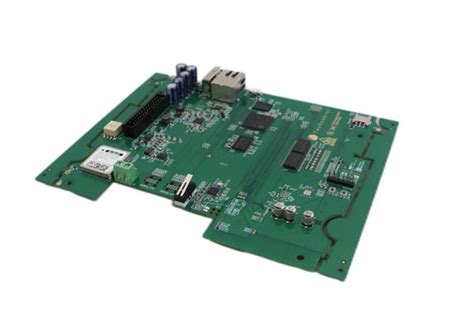
Key Challenges And Solutions In Mexico PCB Assembly
Mexico has emerged as a significant player in the global electronics manufacturing industry, particularly in the realm of printed circuit board (PCB) assembly. This growth can be attributed to several factors, including its strategic geographical location, competitive labor costs, and favorable trade agreements. However, despite these advantages, the PCB assembly sector in Mexico faces a number of challenges that require strategic solutions to ensure continued growth and competitiveness.
One of the primary challenges in Mexico’s PCB assembly industry is the need for skilled labor.
While the country boasts a large workforce, there is a noticeable gap in the availability of workers with specialized skills required for advanced PCB assembly processes. This skills gap can lead to inefficiencies and increased production costs. To address this issue, companies are investing in training programs and partnerships with educational institutions to develop a workforce that is proficient in the latest technologies and techniques. By enhancing the skill set of their employees, these companies can improve productivity and maintain high-quality standards.
Another significant challenge is the supply chain complexity associated with PCB assembly.
The process involves sourcing a wide range of components from various suppliers, which can lead to delays and increased costs if not managed effectively. To mitigate these risks, companies are adopting strategies such as diversifying their supplier base and implementing advanced supply chain management systems. These measures help ensure a steady flow of materials and components, reducing the likelihood of production bottlenecks and enabling companies to respond more swiftly to market demands.
Moreover, the rapid pace of technological advancement presents both opportunities and challenges for PCB assembly in Mexico.
As new technologies emerge, companies must continuously adapt their processes and equipment to stay competitive. This requires significant investment in research and development, as well as a commitment to innovation. By staying at the forefront of technological advancements, Mexican PCB assembly companies can offer cutting-edge solutions to their clients, thereby enhancing their market position.
Environmental regulations also pose a challenge to the PCB assembly industry in Mexico.
As global awareness of environmental issues increases, there is growing pressure on manufacturers to adopt sustainable practices. This includes reducing waste, minimizing energy consumption, and ensuring the safe disposal of hazardous materials. To comply with these regulations, companies are investing in eco-friendly technologies and processes. By prioritizing sustainability, they not only meet regulatory requirements but also appeal to environmentally conscious consumers and clients.
Furthermore, the competitive landscape of the global electronics market necessitates a focus on cost efficiency.
Mexican PCB assembly companies must balance the need to offer competitive pricing with the imperative to maintain high-quality standards. This can be achieved through lean manufacturing practices, which emphasize waste reduction and process optimization. By streamlining operations and eliminating inefficiencies, companies can reduce costs while maintaining the quality and reliability of their products.
In conclusion, while the PCB assembly industry in Mexico faces several challenges, there are viable solutions that can be implemented to overcome these obstacles.
By investing in workforce development, optimizing supply chain management, embracing technological advancements, adhering to environmental regulations, and focusing on cost efficiency, Mexican PCB assembly companies can strengthen their position in the global market. As they navigate these challenges, they contribute to the growth and sustainability of the electronics manufacturing sector in Mexico, ensuring its continued success in the years to come.
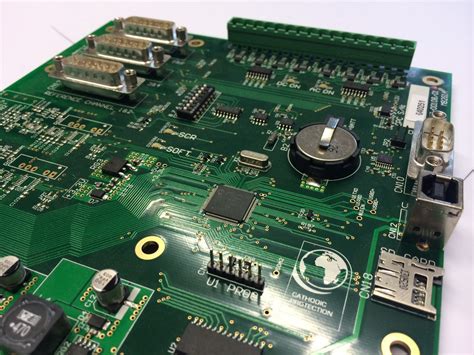
The Future Of PCB Assembly In Mexico: Trends And Predictions
The future of PCB assembly in Mexico is poised for significant growth and transformation, driven by a confluence of technological advancements, economic factors, and strategic initiatives. As the global demand for electronic devices continues to surge, Mexico is emerging as a pivotal player in the printed circuit board (PCB) assembly industry. This evolution is underpinned by several key trends and predictions that are shaping the landscape of PCB assembly in the region.
To begin with, Mexico’s strategic geographical location offers a distinct advantage for PCB assembly.
Situated close to the United States, one of the largest markets for electronic products, Mexico provides an ideal base for companies looking to optimize their supply chains. This proximity not only reduces shipping times and costs but also facilitates easier compliance with trade regulations, making Mexico an attractive destination for international electronics manufacturers.
Moreover, the Mexican government has been proactive in fostering a conducive environment for the electronics industry.
Through various incentives and policies, the government aims to attract foreign investment and enhance the country’s manufacturing capabilities. These initiatives include tax breaks, infrastructure development, and the establishment of special economic zones, all of which contribute to a more favorable business climate for PCB assembly operations.
In addition to these economic factors, technological advancements are playing a crucial role in shaping the future of PCB assembly in Mexico.
The rise of Industry 4.0 technologies, such as automation, artificial intelligence, and the Internet of Things (IoT), is revolutionizing manufacturing processes. Mexican PCB assembly plants are increasingly adopting these technologies to improve efficiency, reduce errors, and enhance product quality. Automation, in particular, is expected to lead to significant cost savings and increased production capacity, enabling Mexican manufacturers to compete more effectively on the global stage.
Furthermore, the growing emphasis on sustainability and environmental responsibility is influencing the PCB assembly industry in Mexico.
As consumers and businesses alike become more conscious of their environmental impact, there is a rising demand for eco-friendly manufacturing practices. Mexican PCB assembly companies are responding by implementing green technologies and processes, such as recycling initiatives and the use of environmentally friendly materials. This shift not only aligns with global sustainability trends but also positions Mexico as a leader in responsible manufacturing.
Another trend shaping the future of PCB assembly in Mexico is the increasing focus on research and development (R&D).
To stay competitive, Mexican companies are investing in R&D to innovate and develop cutting-edge technologies. Collaborations with universities and research institutions are fostering a culture of innovation, leading to the creation of new products and solutions that meet the evolving needs of the electronics market.
Looking ahead, the future of PCB assembly in Mexico appears promising, with several predictions indicating continued growth and development.
Analysts anticipate that Mexico will solidify its position as a key hub for electronics manufacturing, driven by its strategic advantages and commitment to innovation. As the industry evolves, Mexican PCB assembly companies are expected to expand their capabilities, offering more complex and high-value services to meet the demands of a rapidly changing market.
In conclusion, the future of PCB assembly in Mexico is characterized by a dynamic interplay of economic, technological, and environmental factors. With its strategic location, supportive government policies, and embrace of advanced technologies, Mexico is well-positioned to capitalize on emerging opportunities in the global electronics industry. As these trends continue to unfold, Mexico’s role in the PCB assembly sector is set to grow, paving the way for a new era of innovation and competitiveness.

